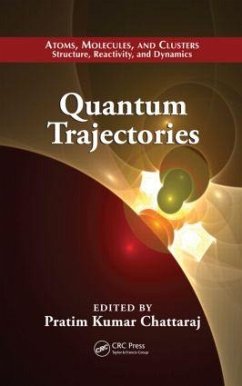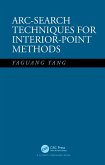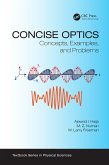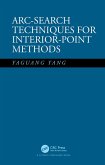"Applying quantum mechanics to many-particle systems is an active area of research. The popularity of using quantum trajectories as a computational tool has exploded over the last decade, finally bringing this methodology to the level of practical application. This book explores this powerful tool to efficiently solve both static and time-dependent systems across a large area of quantum mechanics. Many of the pioneers who have either developed the subject from its inception or have improved on the subject contribute to this volume. They offer their insights on Lagrangian and Eulerian methods as well as various mixed quantum-classical techniques, among other topics"--
The application of quantum mechanics to many-particle systems has been an active area of research in recent years as researchers have looked for ways to tackle difficult problems in this area. The quantum trajectory method provides an efficient computational technique for solving both stationary and time-evolving states, encompassing a large area of quantum mechanics. Quantum Trajectories brings the expertise of an international panel of experts who focus on the epistemological significance of quantum mechanics through the quantum theory of motion. Emphasizing a classical interpretation of quantum mechanics as developed by de Bröglie and Bohm, this volume: Introduces the concept of the quantum theory of motion Explains the connection with conventional quantum mechanics Presents various numerical techniques generated from the Bohmian approach Describes the epistemological significance of quantum trajectories Provides an authoritative account of the foundations of quantum mechanics vis-à-vis that of the Bohmian mechanics The popularity of using the quantum trajectory as a computational tool has exploded over the last decade, finally bringing this methodology to the level of practical applications. Many of the experts in the field who have either developed the methodology or have improved upon it have contributed chapters to this volume, making it a state-of-the-art expression of the field as it exists today and providing insight into the future of this technology.
The application of quantum mechanics to many-particle systems has been an active area of research in recent years as researchers have looked for ways to tackle difficult problems in this area. The quantum trajectory method provides an efficient computational technique for solving both stationary and time-evolving states, encompassing a large area of quantum mechanics. Quantum Trajectories brings the expertise of an international panel of experts who focus on the epistemological significance of quantum mechanics through the quantum theory of motion. Emphasizing a classical interpretation of quantum mechanics as developed by de Bröglie and Bohm, this volume: Introduces the concept of the quantum theory of motion Explains the connection with conventional quantum mechanics Presents various numerical techniques generated from the Bohmian approach Describes the epistemological significance of quantum trajectories Provides an authoritative account of the foundations of quantum mechanics vis-à-vis that of the Bohmian mechanics The popularity of using the quantum trajectory as a computational tool has exploded over the last decade, finally bringing this methodology to the level of practical applications. Many of the experts in the field who have either developed the methodology or have improved upon it have contributed chapters to this volume, making it a state-of-the-art expression of the field as it exists today and providing insight into the future of this technology.








